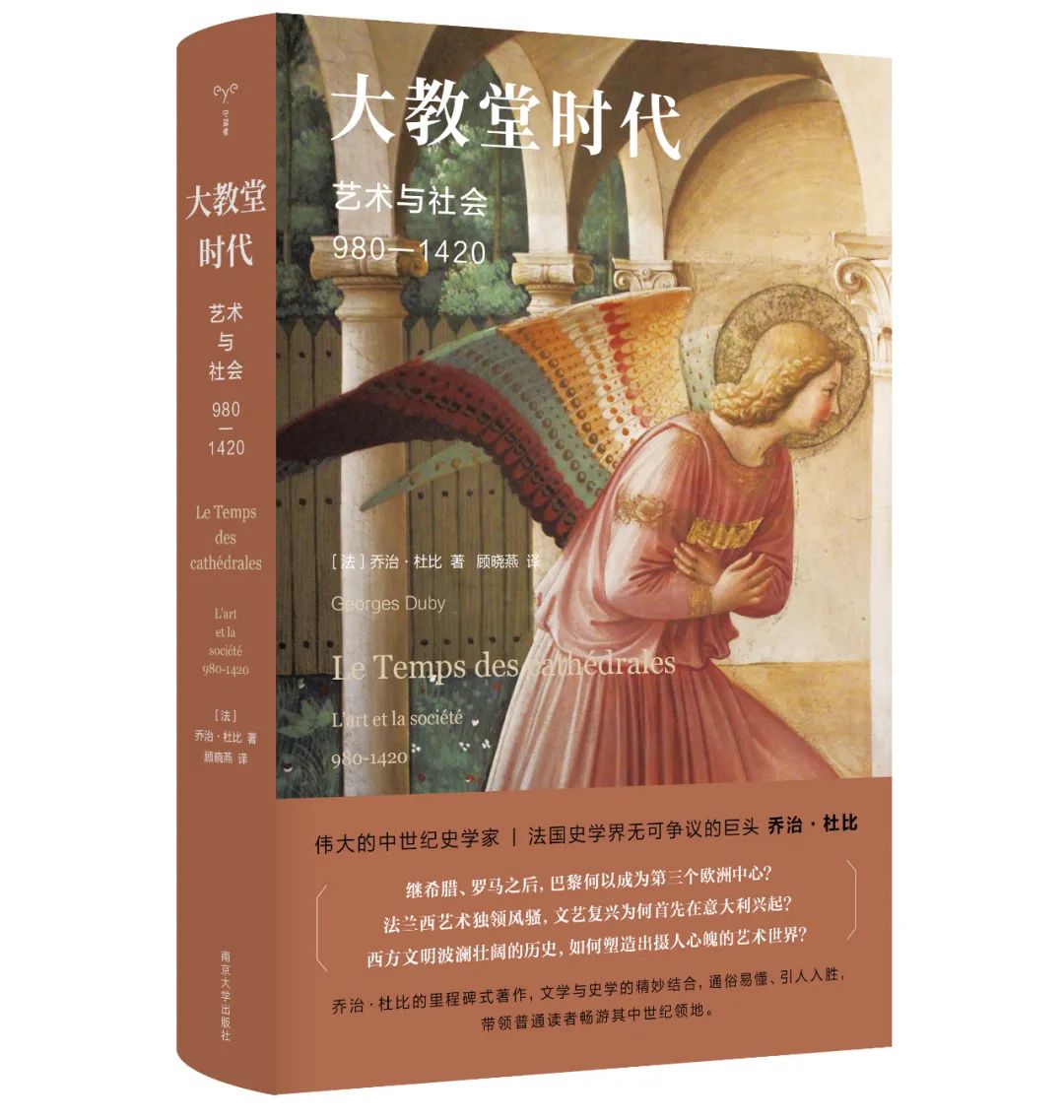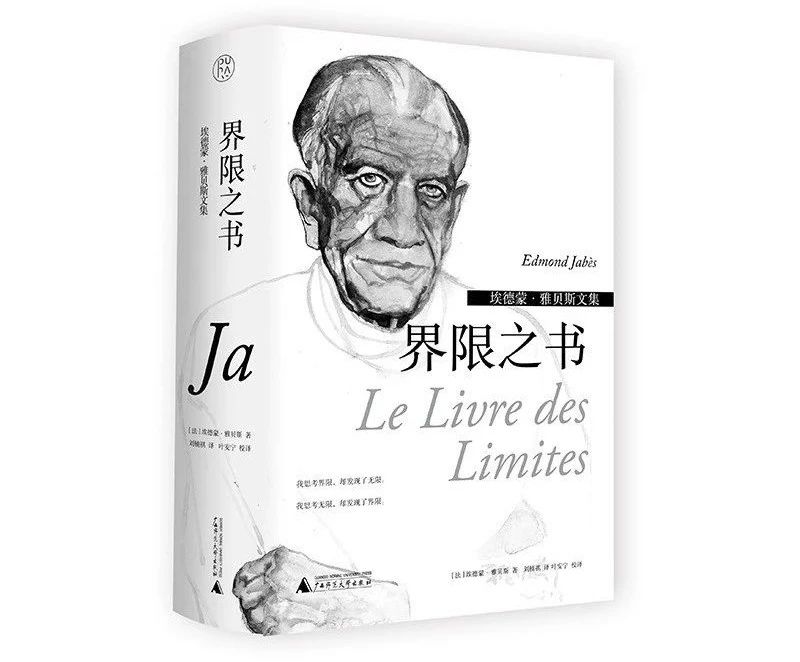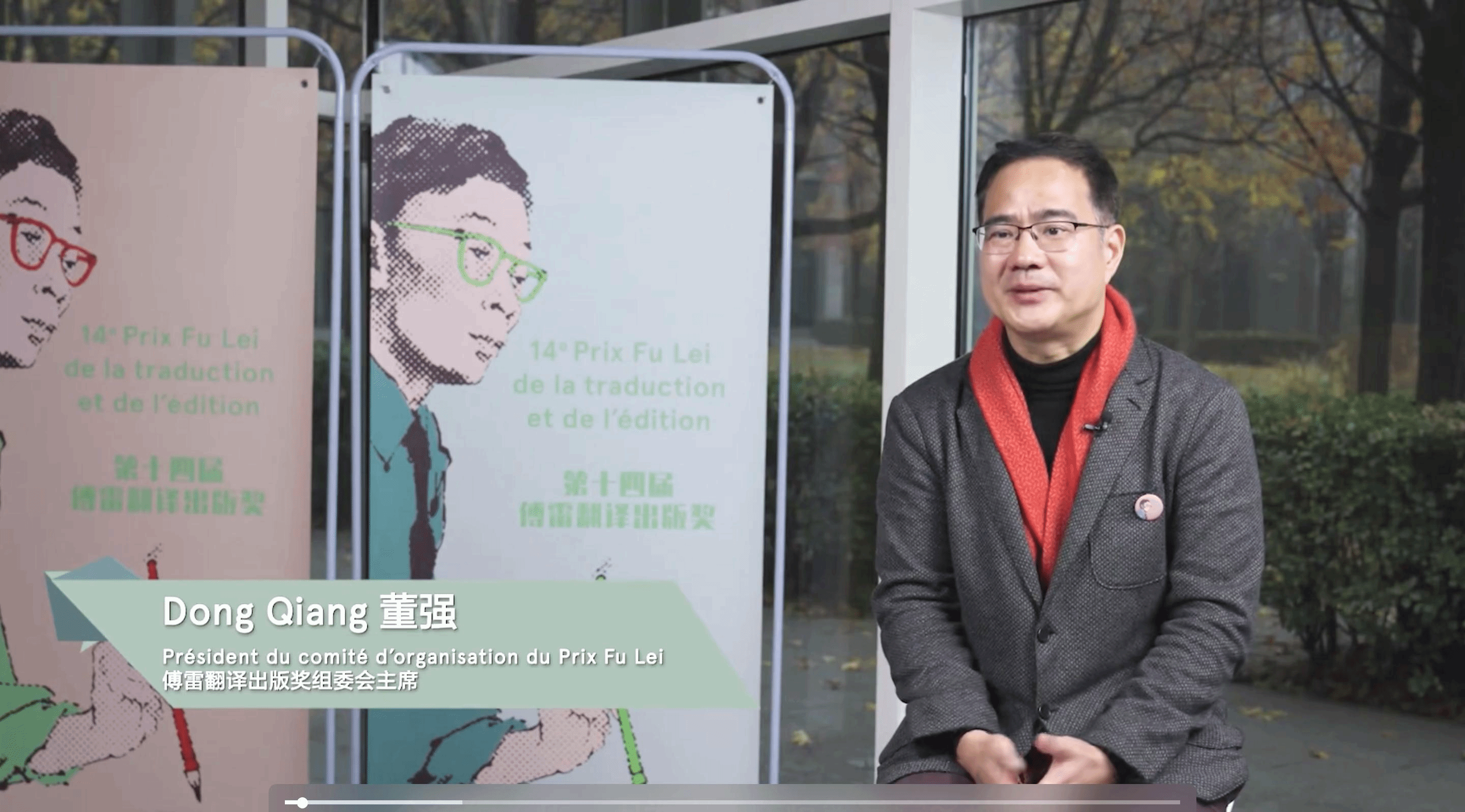Editor’s note
On the evening of December 8, the three winners of the 14th Prix Fu Lei (Fu Lei Translation and Publishing Award) were unveiled. Professor Dong Qiang, President of the 2022 Prix Fu Lei Organizing Committee and Dean of Yenching Academy, sat for an interview with Chinanews.com, discussing how the Prix Fu Lei was initiated and his experiences organizing the awards.
Chinese readers have immersed themselves in the romanticism of French literature, and Chinese and French literary works have been mutually introduced in recent cultural exchanges between France and China. The 14th Prix Fu Lei winners were Gu Xiaoyan, Liu Nanqi, and Lü Ruyu. Gu Xiaoyan won the “Essai” prize (the Prize for Social Sciences) with her translation of Georges Duby’s Le temps des cathédrales: l’art et la société 980–1420 (The Age of the Cathedrals: Art and Society, 980–1420), published by Nanjing University Press. Liu Nanqi was honored with the “Littérature” prize (the Prize for Literature) for his translation of Edmond Jabѐs’s Le livre des limites (The Book of Limits), published by Guangxi Normal University Press Group. Lü Ruyu received the “Jeune pousse” prize (the Prize for New Talent) for her translation of David Foenkinos’s Le mystѐre Henri Pick (The Mystery of Henri Pick), published by Shanghai Translation Publishing House.

“Essai” prize (the Prize for Social Sciences)
Le temps des cathédrales: l’art et la société 980–1420 (The Age of the Cathedrals: Art and Society, 980–1420) by Georges Duby, translated by Gu Xiaoyan and published by Nanjing University Press.
Gu Xiaoyan is a Doctor of French language and Literature in Translation Theory and Practice, a French teacher at Nanjing University of Finance and Economics, and a winner of the 2013 translator’s scholarship from Centre Nationale du Livre (the National Book Center, CNL). Gu presides over translation-related projects and is a published translator of Jacques Tournier’s Le dernier des Mozart, Laurent Vachaud’s Les femmes de l’ombre, and Claude Samuel’s Clara S.: Les secrets d’une passion.
Georges Duby’s Le temps des cathédrales: l’art et la société 980–1420 (The Age of the Cathedrals: Art and Society, 980–1420) is a masterpiece of French history, recognized and admired for the author’s insights into the mentalities of the Middle Ages.
Gu Xiaoyan’s translation faithfully represented Georges Duby’s ideas and retained the historian’s writing style, combining history and literature. Gu did an excellent job on the notes as well.

“Littérature” prize (the Prize for Literature)
Le livre des limites (The Book of Limits) by Edmond Jabѐs, translated by Liu Nanqi and published by Guangxi Normal University Press Group under the Pura Series.
Liu Nanqi received his bachelor’s degree in French language and literature from the Department of Western Languages and Literature of Peking University in 1982 and graduated from the School of Law at the University of International Business and Economics (UIBE) in 2001. He worked in the Chinese Embassy in the Central African Republic as an economic attaché in the 1980s. Long engaged in international business and economics, Liu, since 2014, became a guest professor and postgraduate supervisor at the UIBE Business School. Liu Nanqi is a published translator of the following: Charles Baudelaire’s Les fleurs du mal (The Flowers of Evil) and Le spleen de Paris (Paris Spleen), Francis Jammes’s De l’angélus de l’aube à l’angélus du soir (From the Morning Angelus to the Evening Angelus) and The Funeral of Spring Flowers, and Edmond Jabѐs’s Le livre des questions (The Book of Questions), Le livre des ressemblances (The Book of Limits), Le livre des limites (The Book of Resemblances), Un étranger avec, sous le bras, un livre de petit format (A Stranger with a Small Book Under Arm), and Je bâtis ma demeure. He also published his translation of Yves Bonnefoy’s poetry theories. Liu was shortlisted in the 2021 Prix Fu Lei for translating Le livre des questions (The Book of Questions).
Edmond Jabѐs’s Le livre des limites (The Book of Limits) epitomizes the author’s reflections on the fundamentals of the world, life, Jewishness, selfhood, discourse, and writing. Jabѐs’s trans-genre texts are rich in the wording of abstractionism.
Liu Nanqi has ingeniously transplanted the beauty of rhyme and rhythm in the original work into Chinese. His translation reads like music. He has been admired for his years of efforts in translating Jabѐs’s works.

“Jeune pousse” prize (the Prize for the New Talent)
Le mystѐre Henri Pick (The Mystery of Henri Pick) by David Foenkinos, translated by Lü Ruyu and published by Shanghai Translation Publishing House.
Lü Ruyu, Doctor Litterarum of French from Peking University and lecturer of the French Department at Renmin University, is a published translator of French novels since 2013, with published translations of David Foenknios’s La délicatesse, Charlotte, and Le mystѐre Henri Pick (The Mystery of Henri Pick).
David Foenkinos’s Le mystѐre Henri Pick (The Mystery of Henri Pick) keeps the readers with its captivating plot and writing. It is a comedy, but a comedy of deep love and serious thinking. Lü Ruyu’s translation is full of witty humor as is in the original.
President of the Organizing Committee of the Prix Fu Lei de la traduction et de l’édition (the Fu Lei Translation and Publishing Prize)
Dong Qiang
Dean of Yenching Academy and Boya Distinguished Professor and doctoral supervisor of the Department of French at Peking University; Honorary Doctor of Vrije Universiteit Brussel (Free University of Brussels, VUB). Professor Dong was named Chevalier de l’Ordre des Palmes académiques (Order of Academic Palms) in 2008, awarded le Grand Prix de la Francophonie de l’Académie française in 2013, and named Chevalier de l’Ordre national de la Légion d’honneur (National Order of the Legion of Honor) in 2015. He became a correspondent member of the French Institute in 2016.

Fu Lei is a great figure in China’s history of translation. He translated 33 works, totaling six million words in his lifetime, and introduced master-hands and masterminds in French literature and philosophy, including Honoré de Balzac, Roman Rolland, François Voltaire, Georges Duhamel, and Prosper Mérimée, to Chinese readers and writers.
The prize was established at the initiative of the French Embassy in China in 2009 to support the translation of French literary and academic works in China and make French culture known to more Chinese. The Prix Fu Lei awards the two best Chinese translations of French works every year, one for literature and one for social sciences. The “Jeune pousse” prize was first given in 2013 to encourage more young French-Chinese translators.
Prix Fu Lei is a top translation and publishing award in China. “Over 14 years, we have received roughly 1,000 entries, and 140 have been shortlisted. We have had 37 awarded,” Dong Qiang remarked, noting the prize’s achievements with pride.
Professor Dong was happy to see that Fu Lei’s works and efforts have exerted significant influence on young French-Chinese translators in China, “Prix Fu Lei is a product of cultural exchange between China and France. It is now a benchmark translation award in China and has gained a reputation across the world.”
Nobel Prize-winning French novelist Jean-Marie Gustave Le Clézio once said, “Without translators and translated works, we would be like the blind and the deaf. Without cultural exchange, we would probably know nothing outside our village or city.”
“The jury of Prix Fu Lei has been firm on our criteria: the original work’s reputation and influence, the Chinese translation’s quality, the publication’s quality, and the work’s importance in China,” commented Duanmu Mei, permanent judge of Prix Fu Lei.
More translators have been engaged in French-Chinese translation thanks to the prize. “We had not enough French-Chinese translators in China 20 years ago. But the situation is entirely different now,” said the French-Chinese translator Yu Zhongxian. Chinese readers can satisfy their appetite for (French) literature, poetry, history, social sciences, and legal ideas.
More young translators are joining. Eight out of ten shortlisted translators this year were born in the 1980s and 90s. “Prix Fu Lei aims to attract more young people to French-Chinese translation,” introduced Professor Dong, who also noticed a change in the translated works—while French literary classics were once translated in large numbers, translators are turning to modern French literature and books on social sciences.
Translators are like ferrymen across languages, works of literature, and cultures; they sit at the core of cross-cultural dialogs. Translated works are like a pavement that leads to wonderlands of different cultures. Readers in China and other countries, thus, meet, understand, and become friends. “Translators are joining hands to boost cultural exchange,” stated Professor Dong.
Translation is a bridge that links cultures. Translators have worked hard throughout the ages in China: Buddhist scriptures were translated into Chinese in the Han and Tang dynasties; books on modern sciences from the West were translated into Chinese in the Ming and Qing dynasties; many books from the West were introduced to Chinese readers between 1840 and 1919; and Western literary works have been translated in large numbers from 1978 onwards. Likewise, Chinese classics were translated and became popular in Europe in the 17th and 18th centuries, and, in more recent times, Chinese literary works are being translated and published in multiple languages under copyright licensing. Translation and translators play a pivotal role in cross-cultural communication.
Nobel Prize-winning novelist Mo Yan cherished what translators have done, “Translation is a great work. I owe my prize-winning to translators’ ingenious, creative efforts.”
Exchanges and mutual learning have enriched our civilizations. The academic and translation circles believe that translation awards like the Prix Fu Lei will encourage more talented translators to join hands in cross-cultural communication.